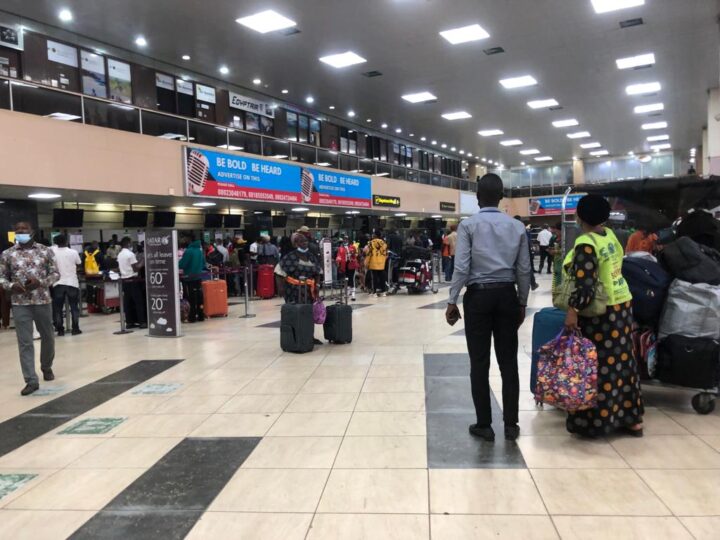Festus Keyamo, minister of aviation and aerospace development, says the Cape Town treaty would enhance aviation compliance by eliminating judicial barriers.
On September 12, the federal government signed the Cape Town Convention (CTC) practice direction to enable domestic airline operators to access aircraft on dry lease.
The document was signed by John Tsoho, chief judge of the federal high court, during a meeting of the Presidential Council of the Presidential Enabling Business Environment Council (PEBEC) in Abuja, presided over by Vice-President Kashim Shettima.
In a statement on Thursday, Tunde Moshood, the minister’s spokesperson, said one of the key points of Keyamo’s 5-point agenda is to promote the growth and sustainability of local airlines while adhering to the highest international standards.
Advertisement
“In pursuit of this agenda, the Minister was confronted with the lingering problem of the low rate of Nigeria’s compliance with the Cape Town Convention – a Convention that regulates the dry-leasing of aircrafts by major aircraft manufacturers such as Boeing and Airbus and major leasors across the world who perceived Nigeria as a non-compliant country,” the statement reads.
“This led to the blacklisting of Nigeria by the Aviation Working Group.
“The AWG CTC compliance index shows Nigeria’s substantial non-compliance with the CTC which is largely as a result of legal impediments in the country’s judicial process which have adverse impact on the implementation and compliance with terms of the convention.
Advertisement
“Certain judicial cases have shown that speedy reliefs sought by the creditors were not granted within the 10 days declaration made by Nigeria under the convention.
“The minister, with the key support of Mr. President, the Vice-President and the Attorney-General of the Federation, then reached out to key institutions and offices in the judicial sector to make this possible, which resulted in the signing of the practice direction today.
“The new practice directions issued by the chief judge of the federal high court will eliminate judicial impediments in the implementation and compliance with the Cape Town Convention.”
‘PRACTICE DIRECTIONS TO BOOST INVESTORS’ CONFIDENCE’
Advertisement
Moshood said the move would revolutionise airline business in Nigeria, boost investors’ confidence, and make it easier for local airlines to acquire aircraft at significantly lower costs.
The development, he said, is expected to create jobs and enhance the growth of the aviation sector, thereby enabling it to compete favourably on the global stage and contribute more to Nigeria’s gross domestic product (GDP).
“It is important to stress that as a party to the convention on International Mobile Equipment (Convention) and the Protocol to the Convention on International Interests in Mobile Equipment on Matters Specific to Aircraft Equipment (the Protocol) which was adopted in Cape Town South Africa on the 16th November 2001 and has been ratified and domesticated in the Civil Aviation Act 2006, as amended in the Civil Aviation Act 2022, Nigeria has the obligation to ensure that its domestic laws and its courts and administrative bodies give full effect to the CTC and that the timelines and remedies set in the CTC are not varied at the discretion of the courts,” he added.
“It is only by so doing that the primary objective of the CTC which is to facilitate the efficient financing and acquisition of aircraft objects by the recognition of the international interests created in the objects can be beneficial to airline operators in the country.”
Advertisement
Moshood said the minister appreciates all stakeholders involved in achieving the milestone.
Advertisement
Add a comment









